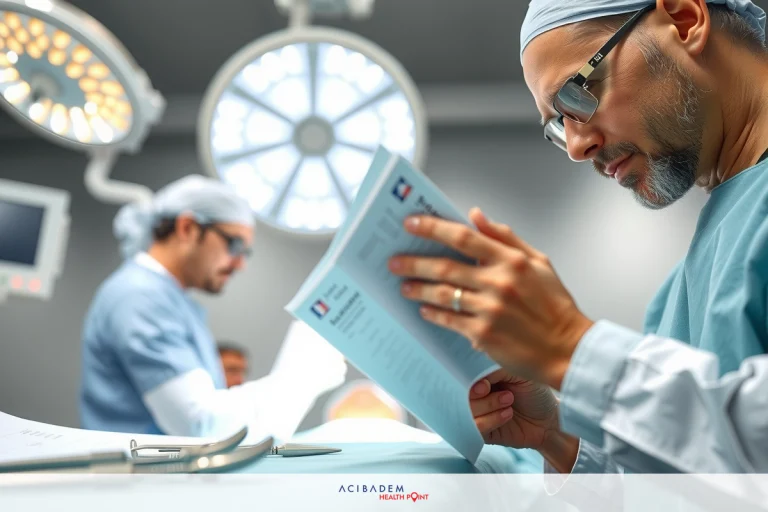Why Can’t I Drink or Eat Before Nose Surgery?
Why Can’t I Drink or Eat Before Nose Surgery? Understanding the need for fasting before nasal surgery can sometimes be confusing. However, it is a crucial part of the preoperative preparation that ensures patient safety during the procedure. The body’s natural reflexes are suppressed under anesthesia, which could lead to complications if there is food or liquid in the stomach.
Following dietary restrictions and adhering to fasting guidelines are instrumental in preventing any potential risks associated with anesthesia. These measures significantly reduce the likelihood of complications such as aspiration, where stomach contents might flow back into the throat and lungs. Thus, observing these instructions is paramount for a successful and risk-free surgical experience.
Preoperative Instructions
Following preoperative instructions is a vital aspect of preparing for a nasal surgery. These guidelines are designed to enhance your safety, comfort, and overall surgical outcome. It is essential not to eat or drink anything, including water, after midnight on the night before the surgery. This rule stands regardless of the time of your procedure, even if it’s scheduled for late in the day. The reason for this restriction is to prevent the risk of aspiration during anesthesia.
The preoperative instructions may also include guidance on medication use. Patients must inform their healthcare provider about all medications they are currently taking, including over-the-counter drugs, supplements, and herbal remedies. Some medicines may need to be stopped or adjusted several days before the surgery. For instance, blood thinners can increase the risk of bleeding during surgery, so their use might need careful management in collaboration with your healthcare provider.
Another crucial part of preoperative instructions is about hygiene. A shower or bath with antibacterial soap is usually recommended on the morning of the surgery to minimize the risk of infections. Patients should also refrain from wearing any makeup or nail polish and remove all jewelry before coming in for the procedure. Comfortable and loose clothing is advised as it makes dressing up after surgery easier and more comfortable. Lastly, patients should arrange for someone to drive them home after surgery as they won’t be allowed to drive themselves due to the effects of anesthesia.

Why Can’t I Drink or Eat Before Nose Surgery?: Fasting Guidelines
Fasting guidelines are an integral part of the preoperative instructions provided to patients preparing for nasal surgery. The primary purpose of these guidelines is to ensure that patients’ stomachs are empty at the time of anesthesia administration. An empty stomach reduces the risk of aspiration, a condition where stomach contents might flow back into the throat and lungs during surgery, which can cause serious complications.
The fasting guidelines may vary slightly depending on specific patient factors and the surgeon’s preference, but they generally follow a standard protocol. Typically, patients are instructed not to consume any solid food after midnight on the day of surgery. Clear liquids, including water, clear juices without pulp, and black coffee or tea without milk or creamer, may be allowed up to two hours before the surgery. It is important to note that this does not include alcoholic beverages.
While adhering to these fasting guidelines might cause temporary discomfort due to hunger or thirst, it is crucial to remember their importance in ensuring patient safety during surgery. If you’re finding it challenging to manage your hunger or thirst, consider distracting yourself with a book or a movie. However, if you accidentally eat or drink something against the guidelines, it is vital to inform your healthcare provider immediately. They will decide whether it’s safe to proceed with the procedure or if rescheduling is necessary for your safety.
Frequently Asked Questions
Can I have a small sip of water or take my regular medications on the morning of the surgery?
No, it is essential to follow the fasting guidelines provided by your healthcare provider. This includes avoiding even small sips of water or taking any medications unless specifically instructed otherwise. Fasting helps ensure your safety during anesthesia.
How long do I need to fast before nasal surgery?
The fasting duration can vary depending on the specific instructions given by your surgeon and anesthesiologist. Generally, you will be instructed not to consume any solid food after midnight on the day of your surgery. Clear liquids may be allowed up to two hours before the procedure, but it's important to follow the specific guidelines provided to you.
Can I brush my teeth on the morning of the surgery?
Yes, you can brush your teeth on the morning of the surgery. However, make sure not to swallow any water or toothpaste while doing so. It's important to maintain good oral hygiene, but remember to avoid consuming anything by mouth, including water, after midnight.
What if I accidentally ate something within the fasting period? Should I still proceed with the surgery?
It is crucial to inform your healthcare provider immediately if you accidentally eat or drink something within the fasting period. They will assess the situation and determine whether it is safe to proceed with the scheduled surgery. Depending on the type and amount of food or liquid consumed, rescheduling might be necessary for your safety.
Can I chew gum or have mints during the fasting period?
No, it is best to avoid chewing gum or having mints during the fasting period. Even though they are not solid food, they can stimulate saliva production and potentially increase the risk of aspiration during anesthesia. It is recommended to strictly adhere to the fasting guidelines provided by your healthcare provider.











